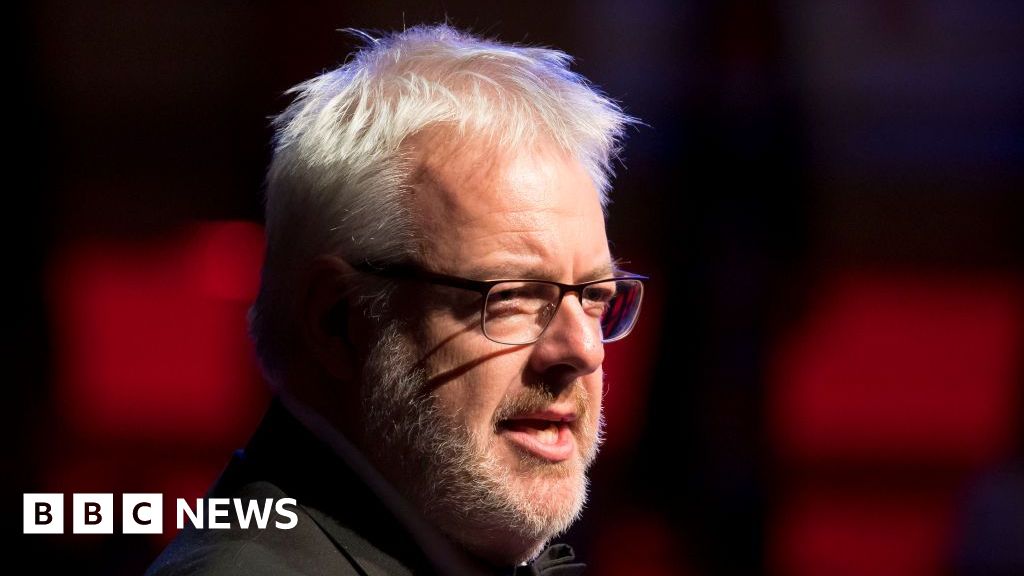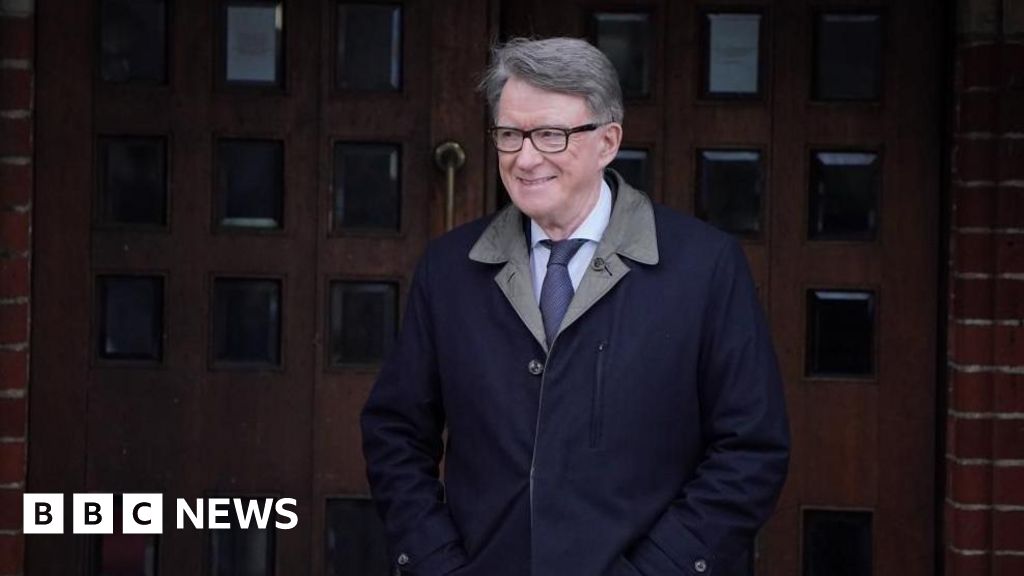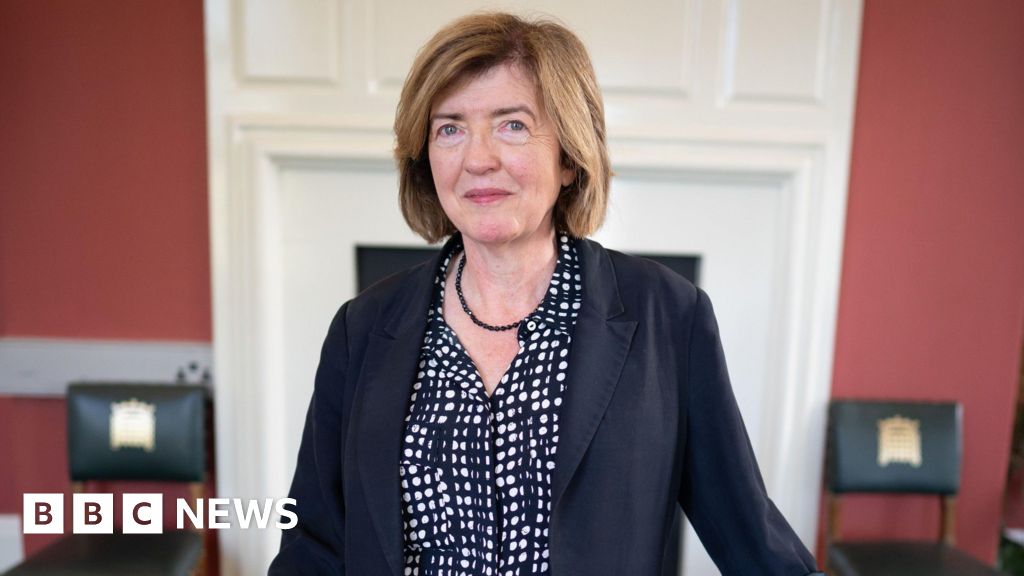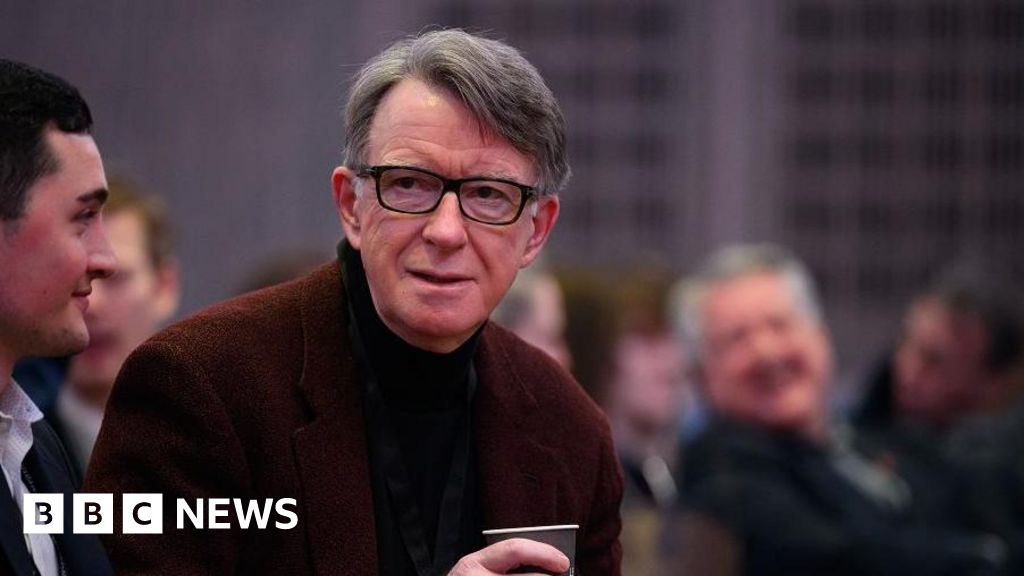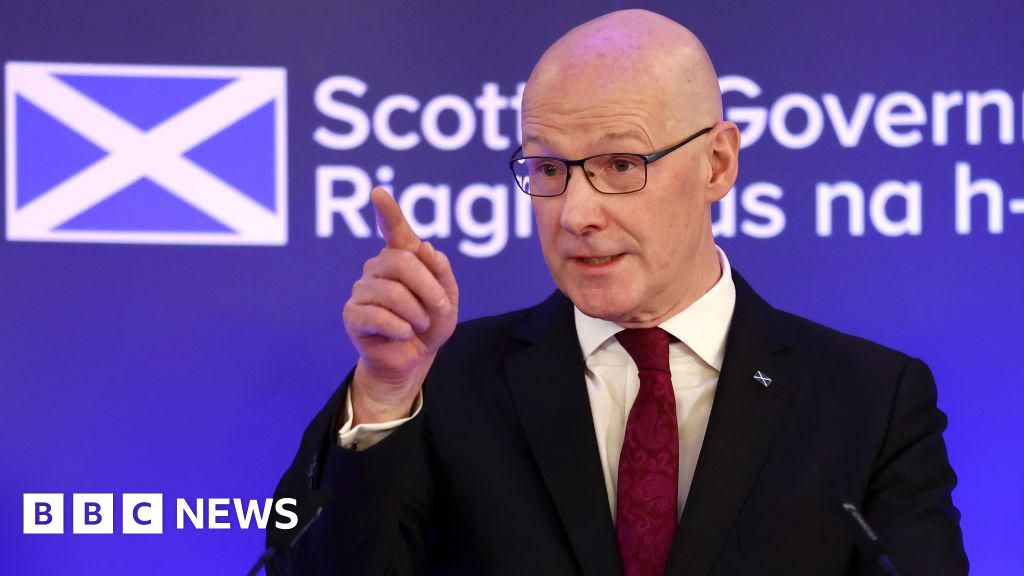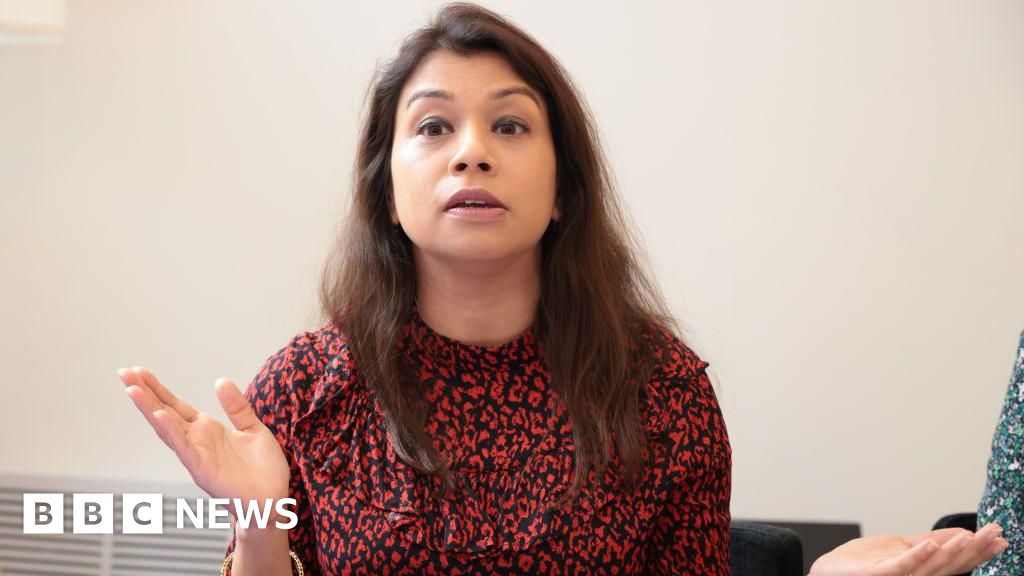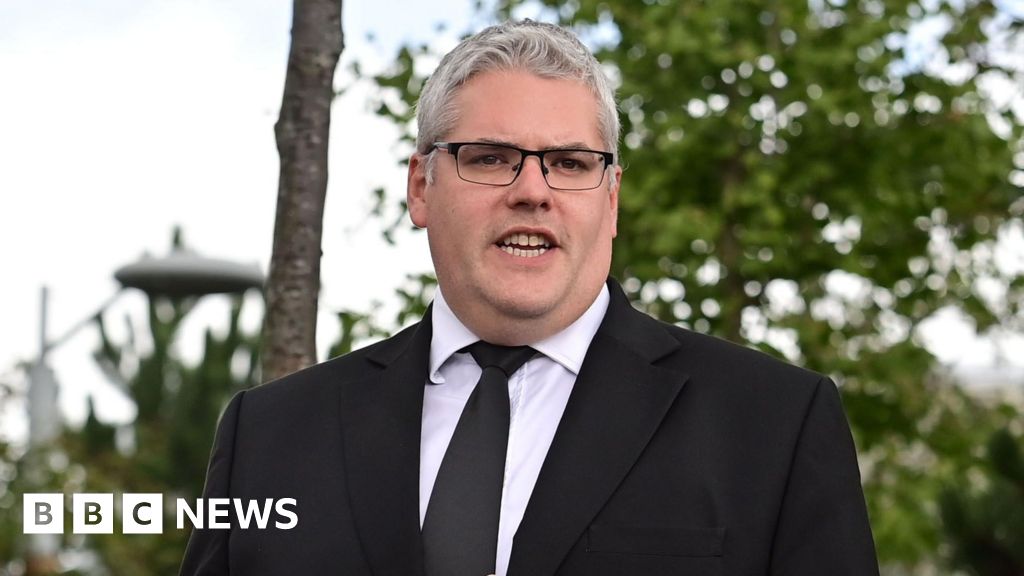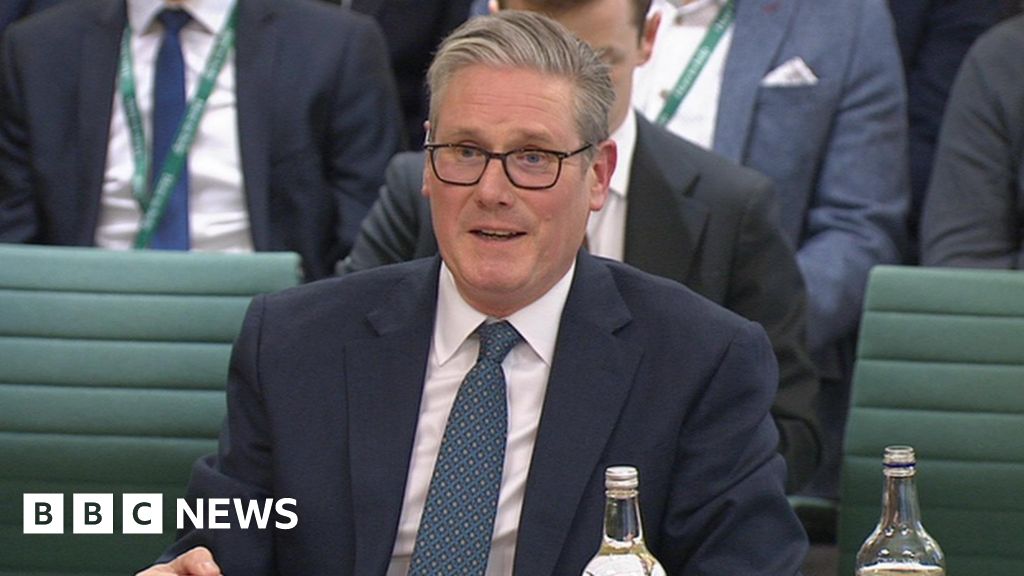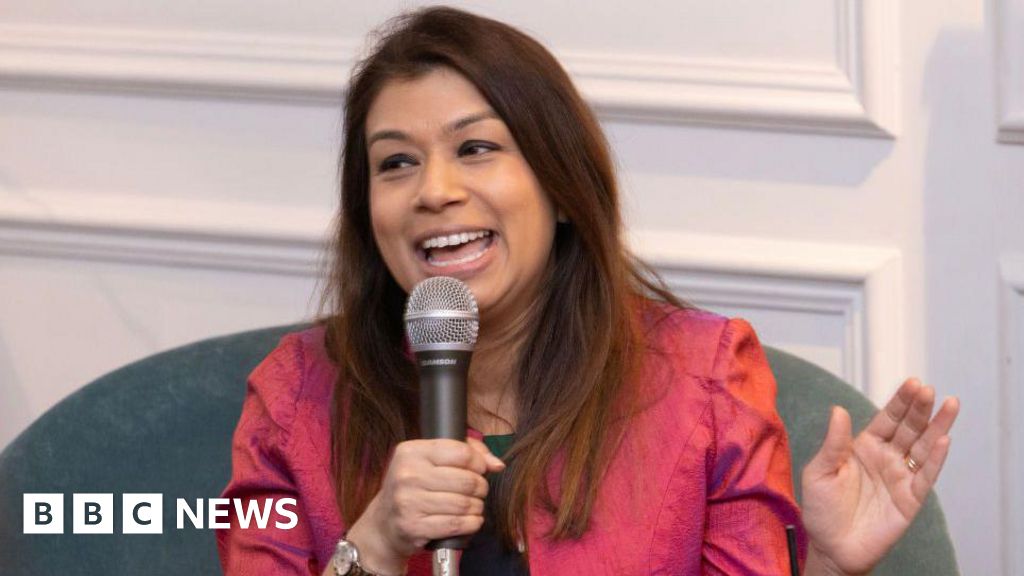
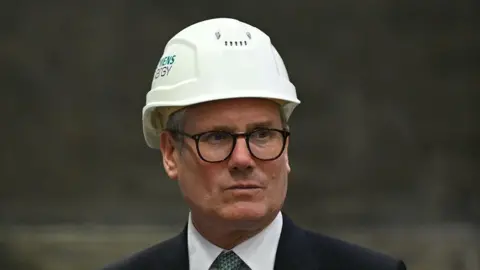 Getty Images
Getty Images
The political wing of the trade union movement has been elected to power for the first time in 14 years.
So many delegates at next week’s Trade Union Congress (TUC) in Brighton will blend celebration with anticipation.
But the Labour Party – set up by trade unions more than a century ago – now claims to be both the party of business and of the workers.
This has led to suspicion from some union leaders that Labour’s promised package of employment rights would be further watered down.
Well-placed union sources don’t believe these fears are justified.
The general secretary of the TUC has publicly hailed the forthcoming employment legislation as "the biggest upgrade of workers’ and union rights in a generation".
Paul Nowak told the Labour List website that he had been at the TUC since the 1990s and "I can’t think of a more ambitious programme for the world of work".
The 2016 Trade union Act will be repealed – scrapping turnout thresholds before industrial action be taken.
The more recent Minimum Service Level legislation – to ensure, for example, that a certain number of trains would run on strike days – is also headed for the dustbin of history.
But the TUC believes the measures are not anti-business or hugely radical.
Mr Nowak told the BBC: "Worker protections in this country are weak compared to many other leading economies.
"We urgently need our laws brought closer to the international mainstream. That’s why the government’s Employment Rights Bill is so important."
Some unions are still sore that a number of previous Labour promises have already been caveated.
The proposed ban on all zero hours contracts had been diluted to banning "exploitative zero hours contacts" well before the election.
But union movement sources say there has been extensive and constructive engagement with the government over the reforms which will come before parliament next month and "no alarm bells are ringing".
So when Sir Keir Starmer addresses the TUC next week, most delegates will be ready to praise, not bury, him.
But don’t expect a cosy era of corporatism to commence.
There will be flashpoints.
And with many new Labour MPs maintaining the discipline they exercised as candidates, it will be at the TUC that left, and centre left, voices of dissent and discomfort are most likely be heard.

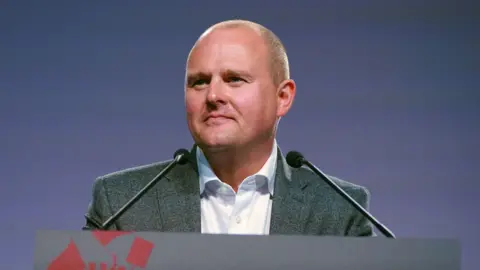 Getty Images
Getty Images
TUC General Secretary Paul Nowak says worker protections are weak in the UK
Sir Keir’s blushes will be spared as some of the more critical debates are expected to take place either before he arrives or after he has departed.
There will be a debate on the withdrawal from most pensioners of the Winter Fuel payment - with calls to rethink, or to mitigate this for those who don’t receive Pension Credit but are still on low incomes.
This is pencilled in for discussion on the same day as the parliamentary vote.
But there will also be a more fundamental challenge to Rachel Reeves’ stewardship of the economy.
A motion from the country’s second biggest union - Unite - declares that more must be done to fix "the broken economy" than wait for economic growth.
So they are calling for the richest 1% to be subjected to a wealth tax - which would cover the "black hole" the government says exists in the public finances.
Unite general secretary Sharon Graham told the BBC: "Why are Labour picking the pockets of pensioners on the winter fuel payments instead of making those with the broadest shoulders actually pay?
The top 50 families in the UK have assets worth £500bn - more than half the population put together.
"A 1% tax on the top 1% would raise £25bn a year."
The union is also calling for Labour to make "different choices" - including the sort of "serious state investment" that would strain or potentially smash the Chancellor’s fiscal rules.
And a motion from rail union the RMT specially calls for the "arbitrary" and "restrictive" rules to be reformed.

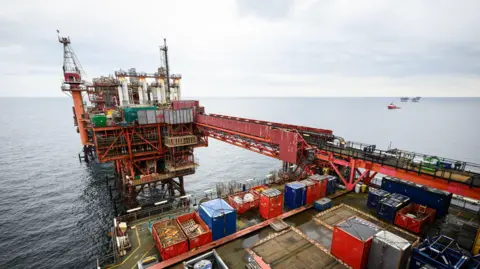 PA Media
PA Media
The GMB is concerned about job losses in the North Sea
Shots will be fired across the bows of Labour’s flagship "green transition" policy.
The country’s second and third biggest unions - Unite and the GMB - are concerned about jobs in the oil and gas industry.
The former union claims 30,000 jobs are at risk and is opposed to ending new oil and gas licences in the North Sea without guarantees on alternative employment.
The latter union calls for an energy strategy which includes not just nuclear and renewables but "oil and gas production," arguing that "gas remains vital to powering UK manufacturing".
Sources suggest the union would rather pursue their objectives through negotiation rather than open confrontation.
The shopworkers’ union Usdaw is usually pretty loyal to the Labour leadership – and head-on criticism of the government from its leadership isn’t anticipated.
But the union is calling for the two child benefit cap to be lifted.
A similar call from seven Labour MPs led to their temporary suspension from their parliamentary party, when they voted with the SNP on this soon after the election.
And Usdaw wants to see a more ambitious plan to tackle poverty.
The union’s leader Paddy Lillis said: "We are calling on the Labour government to promote properly funded social security and employment reform by urgently convening a taskforce to make work pay, end poverty, offer a proper safety net and promote equality."
The wider question is how much impact the trade unions will have. Labour has broadened its donor base and is less dependent on union funding.
Sources stress that even if some critical motions are passed, few would expect the Labour leadership simply and quickly to concede demands.
The employment rights agenda has helped foster goodwill.
But in some areas - especially on the journey to net zero - tensions remain.
And where jobs are under threat in other industries - notably steel – calls for the new government to do more seem inevitable.

 3 months ago
23
3 months ago
23
